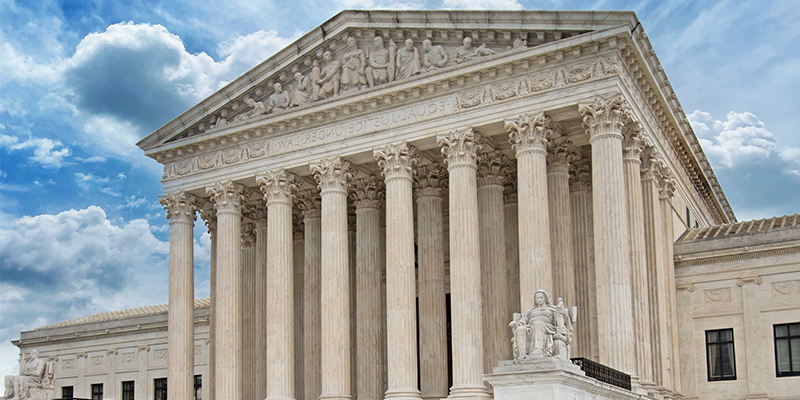The Supreme Court has certainly garnered its share of attention for several of its rulings this last term, but none is likely to have more of an impact on business, including commercial real estate, than its opinion in Loper Bright Enterprises v. Raimondo, issued on June 28. In that case, the Court overturned a 40-year legal standard it had first established in 1984 in Chevron U.S.A., Inc. v. Natural Resources Defense Council, Inc., which stated that courts would defer to federal agency determinations on policy matters if the relevant statutory language was ambiguous.
The so-called “Chevron doctrine,” or “Chevron deference,” as the practice became known, began initially as a practical means of allowing federal regulatory agencies tasked with implementing aspects of legislation that called for scientific or highly technical determinations. It came into play when an agency determined that an area or matter not explicitly authorized in a statute was within the reach of their regulatory authority, as long as their determination was reasonable. Thus, if Congress passed a law requiring the Environmental Protection Agency (EPA) to regulate a certain broad class of chemicals, then the EPA could not be challenged for including substances that the agency stated it reasonably believed were covered by the statute.
But what may have started as a common-sense response to the difficulties of developing regulations that could involve technical, scientific or other such determinations – purportedly to achieve the intent of Congress – became to many critics a way for the executive branch agencies to exert their regulatory reach beyond what Congress had authorized. This, according to detractors of Chevron deference, enabled the political party controlling the White House to write (and rewrite) regulations in order to advance their political regulatory agenda, while giving the agencies an unfair advantage in court when challenged. Supporters of the Chevron deference point out that Congress simply does not have the technical expertise in many areas to list out in statutory language everything Congress intends to cover and relies on the agencies to make these determinations.
In the Loper Bright case, a 2020 federal regulation requires owners of vessels in the Atlantic herring fishery industry to pay for monitors that would oversee their operations and collect relevant data while they were at sea. The National Marine Fisheries Service implemented the rule under a 1976 law, but companies in New Jersey and Rhode Island challenged the regulation, claiming the agency lacked authority to impose industry-funded monitors.
In a 6-3 opinion written by Chief Justice John Roberts, the Supreme Court overruled Chevron and the requirement that courts defer to federal agency determinations when statutes are ambiguous. According to Robert’s opinion: “Chevron is overruled. Courts must exercise their independent judgment in deciding whether an agency has acted within its statutory authority.”
In the majority opinion, Roberts states that Chevron deference was a “judicial invention that required judges to disregard their statutory duties” and that the judiciary – not the agencies – would determine the limits of that agency’s discretion when a statute was ambiguous.
The decision found support by many in Congress who have decried what they saw as federal agencies interpreting laws in ways that Congress did not intend. Representative Mark Green (R-TN) said that Congress “can no longer pass the buck when it comes to our legislative duty. We’ve got to be committed to writing clear legislation.” House Oversight Committee Chairman James Comer (R-KY) issued a statement saying the decision “rightfully hands the power back to American’s elected representatives in Congress to write our nation’s laws and to the courts to interpret them.”
Critics of the decision, however, argued that Congress has needed to rely on agency expertise on policy matters in certain instances. Overruling Chevron would lead to increased legal challenges and hamper the ability of federal agencies to craft regulations that would best achieve the goals Congress intended.
For advocates of regulatory reform, the Loper decision is a welcome development. For commercial real estate in particular, frustration with regulatory bodies asserting jurisdiction in areas where statutes are unclear has long been an issue (think wetlands determinations, for instance). Yet the Loper decision could prove to be a double-edged sword if in fact it leads to increased litigation that stymies development of legitimate regulatory frameworks in tax law.








